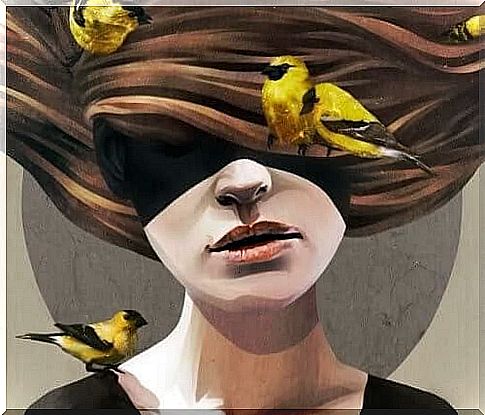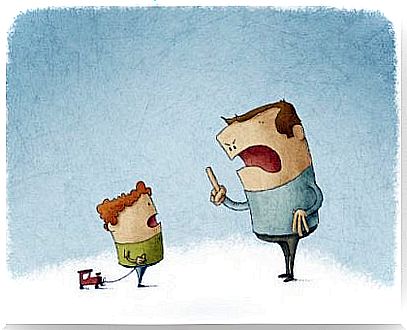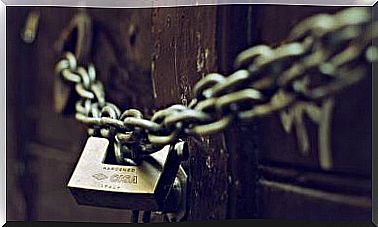When You Make A Mistake, Be Kind To Yourself

Mistakes are inseparable companions in life, as well as wise teachers, as long as we strive to learn from them. From the perspective we take, a mistake can be an opportunity for success, an experience of profound suffering, or an extra event in our lives.
The attitude towards our mistakes is the most important thing of all. The suffering that comes from making a mistake can exert great power over us, especially if we are demanding. But who is the main protagonist that makes us feel so bad when we’re wrong? Next, we’ll introduce it to you: the inner critic.
the inner critic
Do you remember that little voice that comes up inside you and is dedicated to judging how you act, think or feel? It doesn’t have a very high tone, but even in its whisper, the effects it can have on us are amazing. And while we’re not able to see how it looks, it looks like it’s not too big… but what we’re sure of is that the consequences of listening to it can be devastating.

Well then, we introduce you to this character who inhabits our interior and who, in some people, acts as the main protagonist of their lives and, in others, as a secondary actor: his name is Critic and his surname Internal, Internal critic, already the did you know?
“I shouldn’t have said that”, “They won’t give me this job because I don’t have the necessary skills”, “Nothing works for me”, “I’m a disaster, this way no one will want to be with me”, are just a few examples of that our Internal Critic tells us.
This little voice that we are used to empowering can actually complicate our emotional health if we don’t find any remedy. For her, there is never anything done well enough, even though we have put all our effort into it. It only knows how to be alert to warn us that we have deviated from what we internalize as right.
If we had to shape it, it would be like a monster with big eyes that puts on a menacing face every time we don’t do what it deems right or we make a mistake, inducing guilt and master of demand. What bad company, isn’t it?
Origins of the Internal Critic
This little voice comes from past experiences related to our upbringing or painful situations that we live or witness to alert us that we continue not doing things correctly. These are usually criticisms that we internalize and that we transform into a habitual pattern of thoughts.
They taught us the value of demand, effort and commitment, but they forgot to warn us that not everything can be perfect. The world is not black or white: it is full of grey, and we must be aware of this. The quest for perfection makes us insistent but at the same time anxious and stressed, immersed in guilt and frustration if we don’t get what we want.

For the inner critic, there is only one “correct” way, and if we deviate from it, we will suffer again. Deep down, his intention is not bad, seeking to protect us from criticism, rejection, shame and condemnation. The problem lies in their lack of flexibility and their way of communicating through fear, threat and contempt.
Also, the more credibility we give it, the more power it will have over us, becoming our habitual way of thinking.
How to relate to our inner critic?
As we’ve seen, our inner critic will come as a reminder when we’re wrong, despising and blaming ourselves. Its appearance will depend on how we feel, appearing at times when we are most vulnerable, distorting reality and attacking our self-esteem.
So far, we’ve learned that he’s the boss and we’ve obeyed, without questioning him. We play the role of executioners and victims at the same time. But if we don’t set limits, it will end up destroying us. What can we do?

First, keep in mind that the inner critic has grown with you and has established itself as your way of thinking. Therefore, you have to identify it to guide it in a conscious way and setting the proper limits. You can even imagine what it’s like to talk to him when he shows up.
Instead of giving him credibility, question him but treat him with empathy and respect. Their way of relating to you was defined through criticism because it’s the only thing they taught you, but that doesn’t stop you from showing that there are more ways to do things. Let him know that there is flexibility in addition to rigidity, that there are many ways to interpret what happens to us.
Teach that when you make a mistake, criticism hurts you, and that, from now on, being kind has become a priority for your emotional health.









